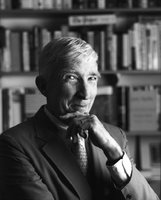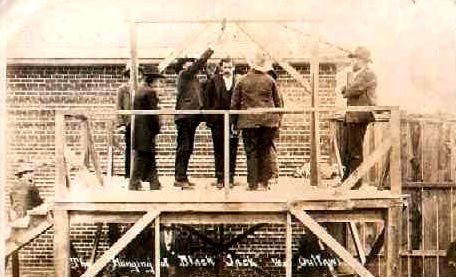Award winning Irish writer. Literary thoughts and literary advice. Author of The Eskimo in the Net (shortlisted for The Kerry Group Irish Fiction Award) and Sightings of Bono (adapted for film featuring Bono (U2). Poetry (Digging My Own Grave 2nd place in Patrick Kavanagh Award), Fiction. Creative Writing instructor and Mentor.
Tuesday, September 25, 2007
Modelling Languages Demise
"All is not lost, Dead Beat."
"How so?"
"Mathematical modelling."
"Oh, now you're talking my language."
"See we developed a simple model of language competition that explains historical data on the
decline of Welsh, Scottish Gaelic, Quechua (the most common surviving indigenous
language in the Americas) and other endangered languages. A linguistic parameter that
quantifies the threat of language extinction can be derived from the model and may
be useful in the design and evaluation of language-preservation programmes."
"More, more."
"Previous models of language dynamics have focused on the transmission and evolution
of syntax, grammar or other structural properties of a language itself. In contrast,
the model we describe here idealizes languages as fixed, and as competing with each
other for speakers."
"Don't stop."
"Consider a system of two competing languages, X and Y,in which the attractiveness of
a language increases with both its number of speakers and its perceived status (a parameter
that reflects the social or economic opportunities afforded to its speakers). Suppose
an individual converts from Y to X with a probability, per unit of time, of Pyx(x,s),
where x is the fraction of the population speaking X, and 0 less than or equal to 1 is a measure of X’s relative status. A minimal model for language change is therefore dx/dt=yPyx(x,s)-xPxy(x,s)."
"Gosh darn, of course it is."
"Contrary to the model’s stark prediction, bilingual societies do, in fact, exist. But the
histories of countries where two languages coexist today generally involve split populations
that lived without significant interaction, effectively in separate, monolingual
societies. Only recently have these communities begun to mix, allowing language
competition to begin. So what can be done to prevent the rapid
disintegration of our world’s linguistic heritage? The example of Quebec French
demonstrates that language decline can be slowed by strategies such as policy-making,
education and advertising, in essence increasing an endangered language’s status."
"Bingo!"
"Speaking of Bingo Dead Beat. I did a mathematical analysis........
The Gestalt Approach Of A Real Writer

Updike’s back.
Sunday, September 23, 2007
Saturday, September 22, 2007
Too Much BS
Dead Beat has been around the block a few times, but who is B.S?
What she write?
No Way
B.S.
Friday, September 21, 2007
New Room For Shapelessness

Tuesday, September 18, 2007
The Loss of the Unknown and the Everyday
"In addition to northern Australia, eastern Siberia and Oklahoma and the U.S. Southwest, many native languages are endangered in South America — Ecuador, Colombia, Peru, Brazil and Bolivia — as well as the area including British Columbia, and the states of Washington and Oregon."
K. David Harrison, an assistant professor of linguistics at Swarthmore College and associate director of the Living Tongues Institute stated: "When we lose a language, we lose centuries of human thinking about time, seasons, sea creatures, reindeer, edible flowers, mathematics, landscapes, myths, music, the unknown and the everyday."
"As many as half of the current languages have never been written down," he estimated.
That means, if the last speaker of many of these vanished tomorrow, the language would be lost because there is no dictionary, no literature, no text of any kind."
Dead Beat remembers well the chant when he was learning Latin - "Latin is a language as dead as dead can be. It killed the ancient Romans, and now it's killing me."
Well we got it right in a manner of speaking. Allowing a language to die is a sure way of killing ourselves.
Centuries of human thinking about time... the unknown and the everyday...
Monday, September 17, 2007
Updike Has His Eyes Opened

Thursday, September 13, 2007
Constants, Units and Uncertainties

Tuesday, September 11, 2007
A Perfect Day For Bananafish

Monday, September 10, 2007
Dead Beat - A Myth or a Legend?

Friday, September 07, 2007
Dead Beat Hands Out Homework

Now, nothing particularly nice about this legend, I suppose.
Black Jack Ketchum.
A legend, nevertheless.
Before becoming Black Jack Ketchum of course, he was simply Thomas Edward Ketchum.
For us writers, all of this is paramount.
Homework for today: What is the difference between a myth and a legend?
How does a person assume legendary status?
How does all of this affect your writing?
Twenty lashes of the birch for all who do not complete this assignment.
Wednesday, September 05, 2007
The Myth of Writing
"Is that you Case?" I whisper.
"The one and only."
"What you doing up this late?"
"Why Dead Beat I'm here to thank you for keeping the legend alive."
"Gee shucks, C.J. but you're my hero."
"Not everyone agrees anymore."
"Problem Case is that they don't know their myths from their hisses."
"Thanks again D.B. Now I gotta go. I gotta run a No. 638 all the way back to Water Valley."
And with the low call of a whippoorwill Casey was on his way.
Now Old D.B. lay his head back down on his pillow, but he couldn't get back to sleep. You see folks, the low call of Casey's whistle, the pounding of John Henry's hammer, they're too insistent.
There is a notion that myth equates to something that is untrue whereas nothing could be further from the truth.
A myth is but a framework which allows us to interpret, make meaning, from something else. In our case fiction, poetry. The myth itself is not intended to be interpreted. A myth creates a rich array of metaphor. It utilises imagery and symbolism. From these we make meaning of the real world.
Our stories are not in themselves real - however they represent reality. Our characters are as far removed from the the individuals peopling our world as is possible, but when we are successful they are believed in as being real. At that moment in time they are mythologised.
As writers our raw material is the stuff of myth - is indeed myth itself.
Tuesday, September 04, 2007
Hammer Gonna Be The Death Of Me

